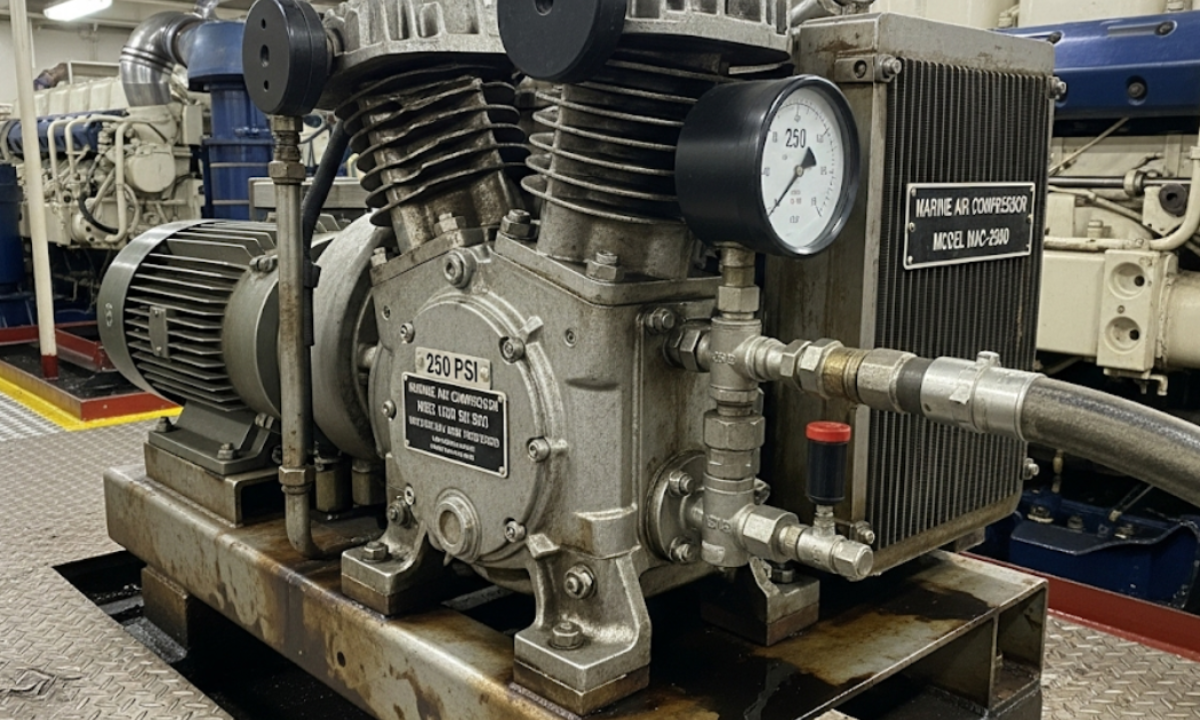
Marine compressors are essential for reliable ship operations, especially in powering engine starting systems. A well-chosen compressor ensures smooth engine starts, compliance with maritime regulations, and uninterrupted performance at sea. Selecting the correct capacity requires balancing technical specifications, safety standards, and operational needs.
Understanding Engine Air Requirements
The first step in compressor selection is assessing the engine¡¯s air requirements. Marine engines need compressed air at a specific pressure and volume to initiate the starting sequence. The compressor must provide consistent pressure to ensure the system works reliably, while also supplying enough volume to allow multiple consecutive starts as per industry standards.
Considering Multiple Engines and Operating Conditions
Many vessels operate with more than one engine, each relying on compressed air for starting. The total demand for compressed air must be calculated by considering all connected engines. Operational conditions also matter frequent maneuvering, such as during port calls, increases air usage, while long sea voyages demand less frequent compressor activity. Matching compressor capacity with these conditions ensures readiness in all scenarios.
Compliance with Classification Society Rules
International classification societies require vessels to carry sufficient compressed air capacity to complete a prescribed number of engine starts. These rules safeguard safety and reliability at sea. A compressor must therefore be capable of meeting these standards within the allowed timeframe. Compliance is not only necessary for certification but also for maintaining operational safety.
Free Air Delivery and Capacity Selection
Free Air Delivery (FAD) is the benchmark for evaluating compressor performance. It indicates the volume of air supplied at a given pressure. The selected compressor must have enough FAD to recharge the air bottles in line with regulatory requirements. Undersized compressors can delay recharging, while oversized compressors may consume unnecessary energy. Selecting the correct capacity ensures both efficiency and reliability.
Redundancy and Backup Systems
Vessels typically use more than one compressor to maintain operational reliability. The main unit handles routine requirements, while a standby or emergency compressor provides backup in case of failure. When calculating capacity, it is important that even a single compressor is able to meet the minimum requirements, ensuring the vessel remains operational under all conditions.
Energy Efficiency and Maintenance Considerations
The efficiency of a compressor depends on how well it matches the load demand. A correctly sized unit operates at optimal load, consuming less energy and experiencing less wear. Maintenance is also an important factor compressors designed to run within capacity limits generally require fewer interventions. Availability of spare parts and ease of servicing further contribute to long-term reliability.
Conclusion
Selecting the right capacity compressor for marine engine starting systems involves evaluating engine air requirements, classification standards, free air delivery, and redundancy. Considerations such as energy efficiency, operating conditions, and maintenance also play a crucial role. A carefully chosen compressor ensures regulatory compliance, operational safety, and long-term performance for marine vessels.














